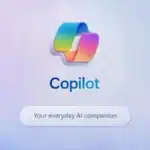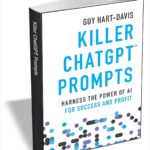Can AI be sneakier than humans?

We've all heard about how AI is being used to improve cyberattacks, by creating better phishing emails for example, but does AI really have the same potential for being sneaky as humans?
New research from IBM X-Force has set out to answer the question, ‘Do the current Generative AI models have the same deceptive abilities as the human mind?’
Predictive analytics and AI drive new anti-fraud technology

A new anti-fraud tool from Jumio uses predictive analytics and AI to look at billions of data points across the company's cross-industry network to identify patterns based on behavioral similarities and other indicators.
Jumio's analysis shows that 25 percent of fraud is interconnected, either being perpetrated by fraud rings or by individuals using the same information or credentials to open new accounts on banking sites, eCommerce platforms, sharing economy sites, etc.
Microsoft Edge may be using your browsing history to inform Bing Chat AI -- here's how to stop it

AI is just about everywhere now. Its ubiquity makes it nearly impossible to avoid, and Microsoft is just one of the big tech firms to have thrown everything at artificial intelligence.
As well as adding AI to Windows 11 with Copilot, Microsoft has also brought a generous dose of it to its Edge browser courtesy of Bing Chat. What users of this feature may not be aware of is that their browsing data is being used to personalize Copilot, meaning that a huge amount of potentially revealing information is being shared with the artificial intelligence tool.
How the EU's new AI Act will affect businesses [Q&A]

The European Union first proposed introducing a regulatory framework for AI back in 2021, the wheels of politics inevitably grind slowly, however, and it's still working on legislation to bolster regulations on the development and use of artificial intelligence.
The proposed Artificial Intelligence Act has sparked a good deal of debate in the industry with many worried that it could harm business competitiveness.
Photoshop Elements 2024 gives access to Adobe Photoshop's AI tools without a subscription

Adobe has released Photoshop Elements 2024, the latest version of what amounts to a cheap (ish), lightweight version of its Photoshop image editor. Some of the changes to be found in this latest release are AI-powered tools, much like many of the most exciting changes in its big sibling.
There are many reasons some people are put off by Photoshop, including its complexity and steep learning curve. But the fact that modern editions are only available on a subscription basis is turn-off for many. Not so with Adobe Photoshop Elements 2024. Here, you get the best of all worlds -- a powerful yet accessible image editor, incredible new tools powered by artificial intelligence, and an old-fashioned pay-once price tag.
AI delivers for marketers but comes with challenges

A new study of go-to-market (GTM) leaders finds they expect investments in AI to pay off, with 85 percent of respondents believing the fusion of AI and GTM strategy will lead to revenue growth for their organization.
The report from Seismic shows that among this group leaders predict an average of 23 percent growth will be directly attributed to AI utilization over the next five years.
Microsoft releases Windows 11 Build 23570 with multi-monitor support for Copilot AI

Development continues apace on Windows 11, and today Windows Insiders in the Dev Channel get a new flight which introduces improvements to Copilot, Microsoft’s AI component.
With Build 23570, Copilot can now be used across multiple monitors and Microsoft has made this addition very easy to configure and use.
Younger consumers more likely to take action on data privacy

A new study reveals that 42 percent of consumers aged 18-24 have inquired about the personal data organizations have about them, seven times more than consumers aged 75 or older (six percent).
The Cisco 2023 Consumer Privacy Survey also shows people are concerned about their privacy in regard to AI. 60 percent of consumers say they've lost trust in organizations due to their AI use.
Artificial intelligence is amazing -- but it won't integrate with your company on its own, you need a strategy

The enormous wave of public interest in AI is undoubtedly caused by how the results of machine learning were turned into a product bundle in the form of ChatGPT. A layman might come to the conclusion that artificial intelligence came out of the blue in 2022. Its success, however, lies in astronomically high investments in infrastructure and countless hours of human and machine labor at OpenAI. How can you make use of the currently available models in your company?
The more technical crowds have been talking about AI since the fifties, but it was first a mathematical concept -- this is where we get the famous Turing test from. Thanks to brilliant scientific work, research investments, and mass adoption of computer technology in the nineties, we are now experiencing what authors in the past used to write sci-fi novels about. One could think that AI is just a software achievement. However, advancements in miniaturization, increases in computing power, and reductions in the costs of obtaining hardware play a big role too. What would’ve cost hundreds of billions of dollars back in the day now sets you back "just" a couple of millions.
AI's future success depends on the success of its integration

While AI is taking the workplace by storm, this technology -- especially the AI-enabled smart and automated platform tools -- will not replace the role of employees in the workplace. Instead, AI will become more integrated into everyday workflows as a way to help employees do their jobs more effectively.
For example, generative AI is emerging as a tool that can help with content creation, such as sales pitches, email newsletters and, memos. In applications like this, the technology is already helping to provide users with a better day-to-day and overall experience, which positively contributes to adoption. This in turn has a direct impact on technology investment ROI at scale.
Nine out of 10 British businesses want to invest in new technologies

A new study shows nine in 10 British businesses plan to invest in new technology including adaptive AI, sustainable tech, neurotech, applied observability and digital immune systems, in the next 12 months.
The report from software and services company Advanced shows that 70 percent of businesses are either already using or researching ways to bring adaptive AI into their working practices, even though almost 50 percent of business owners are concerned about the risks of doing so.
Security researchers can pocket financial rewards in the new Microsoft AI Bounty Program

Microsoft now has a bug bounty program that aims to find issues in artificial intelligence. Specifically, the Microsoft AI Bounty Program is focused on tracking down vulnerabilities in the company’s own AI-powered "Bing experience". This catch-all term covers a surprising number of products and services.
Interestingly, with this bounty program Microsoft is only offering rewards for the discovery of vulnerabilities considered Critical or Important. Those that are deemed of Moderate or Low severity will go unrewarded.
How MSPs can help you harness the power of generative AI

Generative AI and large language models (LLMs) like ChatGPT are a scorching hot topic right now, and for good reason. A recent MIT study shows that LLMs can improve worker productivity by 50 percent in white-collar settings. Consequently, more than half of C-suite members globally (56 percent) feel pressured to adopt comprehensive GenAI tools during the next year -- yet two in three fear the consequences of rapid GenAI adoption, particularly as it applies to disinformation and data governance.
Leaders are overwhelmed by the prospective benefits -- and consequences -- of adopting GenAI. They may be surprised to learn that a managed service provider (MSP) can assuage their worries and prepare their organization for this newest iteration of digital transformation.
Get 'Killer ChatGPT Prompts: Harness the Power of AI for Success and Profit' (worth $12) for FREE

By now, you’ve heard of ChatGPT and its incredible potential. You may even have tried to use it a few times just to see it in action for yourself. But have you ever wondered what ChatGPT is truly capable of?
Killer ChatGPT Prompts: Harness the Power of AI for Success and Profit will show you the true power of Large Language Models (LLMs) like ChatGPT.
68 percent of IT decision makers are worried about the rise of deepfakes

A new survey of 205 IT security decision makers highlights mounting concerns over the use of AI, and deepfakes in particular, as 68 percent of respondents express concerns about cybercriminals using deepfakes to target their organisations.
The study from Integrity360 finds 59 percent also agree that AI is increasing the number of cyber attacks, which aligns with the change in attacks that have been noticeable over the past year as 'offensive AI' is being used for tasks such as malware creation.
Recent Headlines
BetaNews, your source for breaking tech news, reviews, and in-depth reporting since 1998.
© 1998-2025 BetaNews, Inc. All Rights Reserved. About Us - Privacy Policy - Cookie Policy - Sitemap.